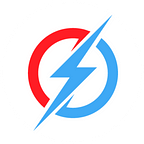NFTs or non-fungible tokens are the latest hype in the crypto space. Everyone seems to be buying and selling NFTs, and it’s the new thing that everyone on social media and elsewhere can’t stop talking about. Even with the Covid-19 pandemic grappling economies, the world seems to be moving on at a faster pace. Cryptocurrencies saw a major increase in popularity and usage in the past year, and so have several other cryptos and blockchain-based applications such as DeFi, NFTs, etc. You’re probably already familiar with the term NFT, and whether you are a buyer or seller, if you’re looking for the best NFT marketplace to trade your product, you’re at the right place.
You’ve probably made a digital artwork, and seeing how digital artworks are selling for millions of dollars as NFTs, you’ve decided to sell your artwork as well. But where do you sell it? How do you sell it? How will you get the proceeds? All these questions are likely in your mind, and as a beginner in the field, it can often be perplexing to navigate through the crypto space. In that case, the first thing you need to know is that NFT marketplaces are the place where you can buy or sell NFTs. While some people may create and develop NFT marketplaces on their own, most people often use prominent marketplaces.
From Rarible to OpenSea to Foundation and SuperRare, there are several NFT marketplaces with great features. But how do you choose the right one? Here are some things to consider when choosing an NFT marketplace.
- Token standard
Not all token standards used by all NFT exchanges are the same. The ERC-721 token standard for Ethereum was the first NFT token standard to be introduced. ERC-1155 and many others quickly followed this. ERC721 tokens are non-fungible, which means that each one is distinct and worth something different. Each token can be regarded as a collectible due to the uniqueness and rarity of its properties, and this is what drives the foundation of NFTs. Despite the existence of other token standards such as BEP-721 and BEP-115 (based on Binance Smart Chain), many NFT traders choose ERC-721.
- Type of NFT marketplaces
Some NFT marketplaces are universal non-fungible token websites, while others are specific peer-to-peer markets. Some marketplaces levy minting costs, while others do not. And while some of them accept all cryptocurrencies, others only accept a limited number of them. Before making a final selection, all of these issues must be thoroughly considered. Even if you are selling your NFT, you will first need to have some cryptocurrency, and this will usually be in Ether, or any other token the marketplace is based upon.
- Verification process for creators
As the NFT markets continue to grow in popularity, so have the number of scammers and impersonators. This is why you need to select a platform that offers a proper verification process for creators. Several artists have fallen prey to impersonators who mint their work and sell it for whopping amounts online, and this fooled several buyers. Because anything can be tokenized on the blockchain, anyone can convert images, videos, artworks, and other digital assets to NFTs and sell them without the original owner’s knowledge. Art theft has always been an issue and continues to be even more relevant in today’s digital space, which is why platforms that have a solid verification process are essential.
- Fractionalization
Fractionalization is a concept that allows you to buy a fraction of an NFT instead of buying the whole thing. Although this dilutes ownership, this increases the number of investors in an NFT and makes NFTs more accessible to the general public. Fractionalisation also allows you to buy or sell part of an NFT.
If you are a buyer, this means you can own a part of an NFT without spending a fortune on it, and for sellers, this means they can sell off part of their NFT instead of selling the whole thing. So, choose a platform that allows fractionalization to get the most out of your NFT trade.
- Price discovery
Price discovery is another innovative yet essential feature that NFT marketplaces should have. The foundation for price discovery is, of course, fractionalization. The concept of price discovery allows you to select the right price for your NFT if you are selling it. As for buyers and investors, price discovery can help them determine whether the given price is approximately accurate or not and then make quick and efficient decisions. With fractionalization bringing more people to the NFT space, there will obviously be more liquidity in the market, and hence, a better price discovery.
These are some of the major factors you need to consider before choosing a suitable NFT marketplace. To help you with fractionalization and price discovery, Fusible is the right platform. Through the liquefactions of NFTs, traders can effectively liquefy their NFTs and create pools. This allows for a curve-based price discovery, which allows the market to be sufficiently liquid while also attracting more people. To learn more about Fusible, check them out below:
